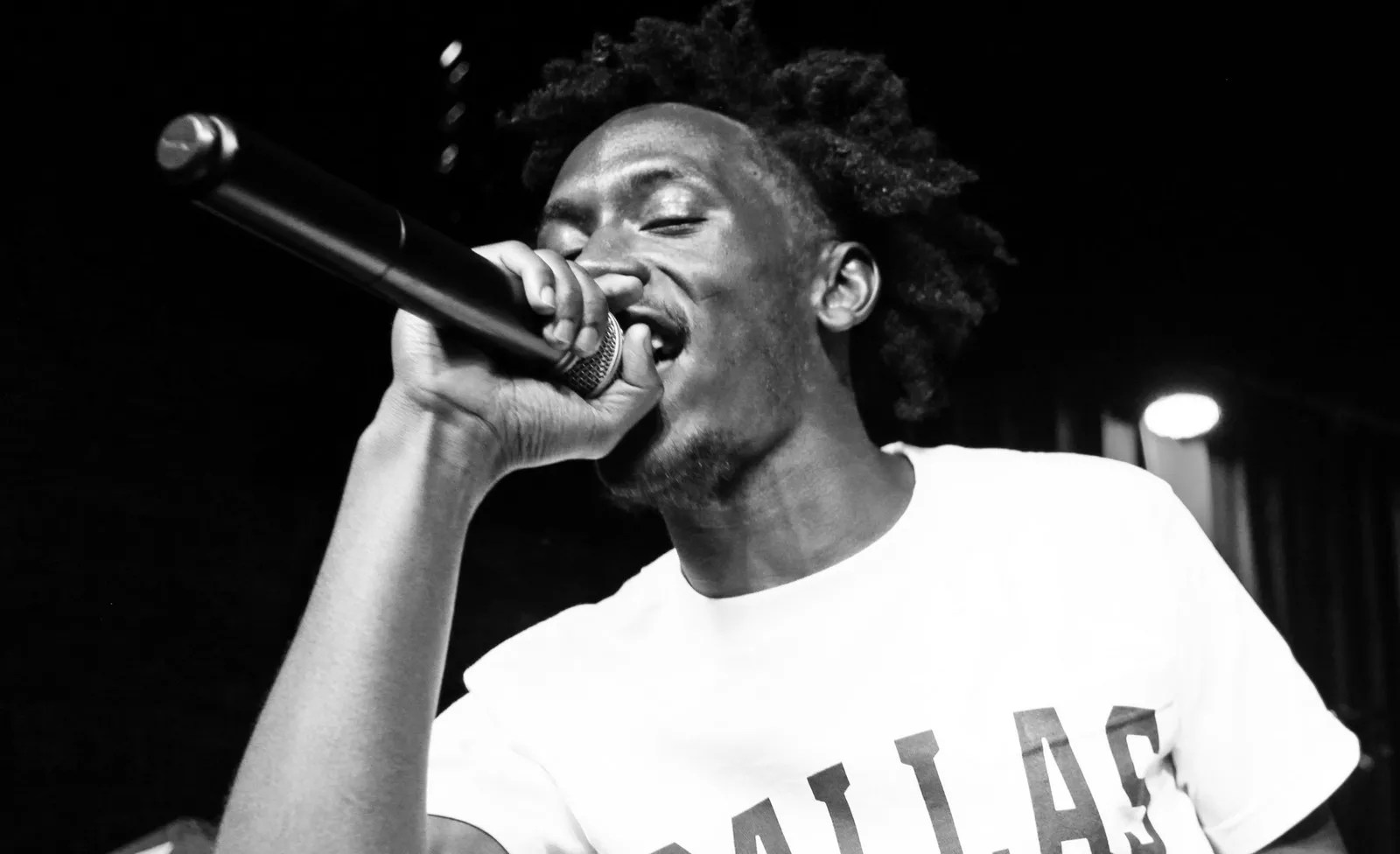
Roderick Pullum

Audio By Carbonatix
The killing of George Floyd may finally propel the early stages of what could be a significant era for police reform – a cause that has long been part of Bobby Sessions’ work. For the Dallas native, police brutality is part of his family history.
The rapper has frequently spoken about his cousin James Harper, who died at the hands of law enforcement in the summer of 2012. The event had a profound effect on his life and changed the direction of his career. Since Harper’s death, police brutality has been a common theme in Sessions’ music. The current widespread call for social reform makes his first two projects for his label Def Jam Records, RVLTN Chapter 1: The Divided States of AmeriKKKa and RVLTN Chapter II: The Art of Resistance, seem prophetic.
Last week, during a Def Jam IGTV livestreamed question and answer event, Sessions spoke about the role artists should have as activists.
“What’s happening today is a confirmation that this music is necessary,” Sessions said. “I’m a big believer that artists are journalists in our own way. It’s up to us to document these times so we’re not dependent on a CNN or Fox News clip in 2023 and 2025 to find out what happened today.
“If you have a gift that God gave you artistically to speak on something, whether that’s you in the booth or you painting, or whatever you do, there are ways for you to chip in, and that’s our mission,” Sessions continued. “I’m optimistic that they will listen because this isn’t just picket signs and tweets anymore. We’re just saying stop killing us. Our demands should actually be much higher than that.”
Sessions also made a call for artists to use their platform to further the cause of justice, but admitted that doing so can be disheartening and frustrating.
“It’s a very uncomfortable experience to make music about what’s going on,” Sessions said. “It rips my fucking heart out, to be honest with you, and it’s exhausting. Even before RVLTN with Def Jam, one of the first songs I put out after I left my job in 2015 was called ‘Black Neighborhood.’ So we’ve been doing this a long time, and it’s almost unfortunate that the music is still relevant. Ideally, even though I made the music, it shouldn’t be relevant. It should have just documented the time.
“It’s a shame that you can still listen to RVLTN and it feels like I made it yesterday,” he said. “So we have to continue to put pressure on people to not treat us however they deem is necessary. You got to treat us with respect, and I don’t think that ‘stop killing us’ is an outrageous request,” he said.
“You got to treat us with respect and I don’t think that ‘Stop killing us’ is an outrageous request.” – Bobby Sessions
Sessions is donating $6,250 to various organizations including Faith In Texas, which assists with legal aid for activists among other services, and Colin Kaepernick’s Know Your Rights Camp. He also encouraged others to support the efforts of Taylor Toynes’ For Oak Cliff organization. Sessions said he hopes his contribution compels other artists to support grassroots organizations so they’ll have the resources to make a difference in the communities they serve.
It’s been two years since Sessions has been under the Def Jam umbrella, and thus far he’s been able to methodically accumulate mainstream accolades without compromising his message of empowerment for black people in America. Those achievements have included going on a national tour with West Coast rapper Boogie, landing the title track on The Hate You Give soundtrack featuring Keite Young of Medicine Man Revival and co-writing Megan Thee Stallion’s hit song “Savage,” produced by North Texan J. White Did It, which reached No. 1 on the Billboard chart in May.
Sessions also released his latest single, “Level Up,” last month and is prepping the third chapter of his RVLTN series.
“Chapter I was about identifying the problem. Chapter 2 is about when the two divided states clash. Chapter 3 is built around heading towards the light at the end of the tunnel,” Sessions explained of the album’s concept. “The war has happened, the resistance has happened, so now what? After stuff has burned down and the policies change, what do we do now? How can we use that to manifest our dreams and manifest our goals? I’m not going to spill everything that that project is about, but, in short, it’s the light at the end of the tunnel.”
Listen to “Level Up” below:
Listen to “Level Up” below: